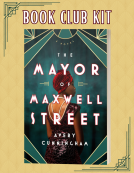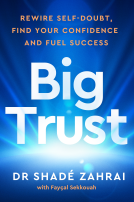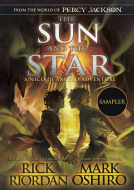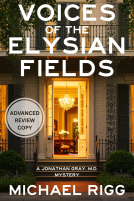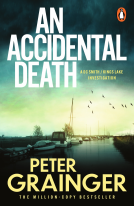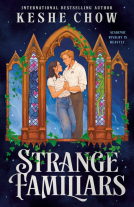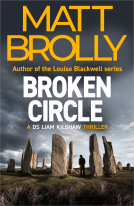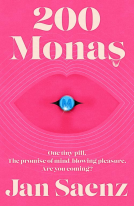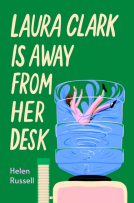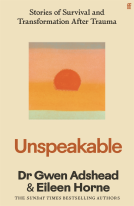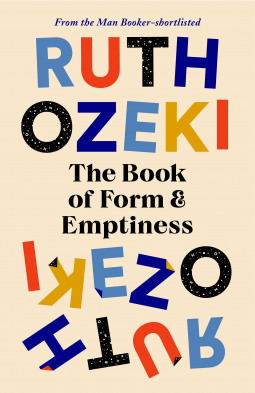
The Book of Form & Emptiness
by Ruth Ozeki
This title was previously available on NetGalley and is now archived.
Send NetGalley books directly to your Kindle or Kindle app
1
To read on a Kindle or Kindle app, please add kindle@netgalley.com as an approved email address to receive files in your Amazon account. Click here for step-by-step instructions.
2
Also find your Kindle email address within your Amazon account, and enter it here.
Pub Date 23 Sep 2021 | Archive Date 23 Sep 2021
Talking about this book? Use #TheBookofFormEmptiness #NetGalley. More hashtag tips!
Description
A brilliantly inventive new novel about loss, growing up and our relationship with things, by the Booker Prize-shortlisted author of A Tale for the Time Being
One year after the death of his beloved musician father, thirteen-year-old Benny Oh begins to hear voices. The voices belong to the things in his house – a sneaker, a broken Christmas ornament, a piece of wilted lettuce. Although Benny doesn't understand what these things are saying, he can sense their emotional tone; some are pleasant, a gentle hum or coo, but others are snide, angry and full of pain. When his mother develops a hoarding problem, the voices grow more clamorous.
At first Benny tries to ignore them, but soon the voices follow him outside the house, onto the street and at school, driving him at last to seek refuge in the silence of a large public library, where objects are well-behaved and know to speak in whispers. There, he falls in love with a mesmerising street artist with a smug pet ferret, who uses the library as her performance space. He meets a homeless philosopher-poet, who encourages him to ask important questions and find his own voice amongst the many.
And he meets his very own Book – a talking thing – who narrates Benny’s life and teaches him to listen to the things that truly matter.
The Book of Form and Emptiness blends unforgettable characters, riveting plot and vibrant engagement with everything from jazz to climate change to our attachment to material possessions. This is classic Ruth Ozeki – bold, humane and heartbreaking.
Advance Praise
‘This compassionate novel of life, love and loss glows in the dark. Its strange, beautiful pages turn themselves. If you’ve lost your way with fiction over the last year or two, let The Book of Form and Emptiness light your way home’
DAVID MITCHELL
‘This is both an extremely vivid picture of a small family enduring unimaginable loss, and a very powerful meditation on the way books can contain the chaos of the world and give it meaning and order. Annabelle and Benny Oh try to stay afloat in a sea of things, news, substances, technological soullessness and psychiatric quagmires, and the way they learn to live and breathe and even swim through it all feels like the struggle we all face. The Book of Form and Emptiness builds on the themes of A Tale for the Time Being, and ratifies Ozeki as one of our era’s most compassionate and original minds’
DAVE EGGERS
‘Once again, Ozeki has created a masterpiece. Her generous heart, remarkable imagination and brilliant mind light up every page’
KAREN JOY FOWLER
‘Heart-breaking and heart-healing – a book to not only keep us absorbed but also to help us think and love and live and listen. No one writes quite like Ruth Ozeki and The Book of Form and Emptiness is a triumph’
MATT HAIG
‘Ozeki's prose is warm and welcoming, but as you turn the pages you'll see that she carries her pen to dark places. Her characters ask What is a self, what should we hold onto, what to do when the whole world hurts? And yet even in this darkness, she finds hope. Ozeki reminds me of a literary bower bird, taking interesting things from across traditions and continents, all to make this intricate nest for us, her readers’
ROWAN HISAYO BUCHANAN
‘Ozeki has done it again. This time she crosses into new dimensions, breathing life into pages, enticing us into an intimate world. Richly imagined, gorgeously executed, The Book of Form and Emptiness is a remarkable book’
DAVID EAGLEMAN
‘A shimmeringly sad tale of a widowed mother and her heartbroken son, whose grief has built him an ear sharpened to the clamour and suffering of his object-filled world. This novel asks the reader to hold this mother-son pair very close, in radical intimacy, questioning what happens when we unbind the stories and labels that form and empty us, that make us familiar but also strange to one another. I am a deep fan of Ozeki’s wild, unbridled brain and I adored this profound book which, itself, felt like a gloriously vibrant thing’
KYO MACLEAR
Available Editions
| ISBN | 9781838855239 |
| PRICE | £18.99 (GBP) |
Average rating from 85 members
Featured Reviews
There is a lot to unpack in this lengthy novel: The Book of Form and Emptiness demands your commitment. As you'd expect from a book about storytelling, there are so many layers to the narrative, whole constellations of characters and allegories to uncover.
It's complex and often intense, but ultimately it's a charming rumination on the nature of being and finding meaning in a mad world.
A book that was moving in such a curious way, touching on dark topics with such sensitivity and grace, I really resonated with it. The two voices carrying the book were intriguing and the depth of emotion infused spanned the whole spectrum.. Overall, with imagery and themes of family and grief, The Book of Form and Emptiness was such a heart-breaking but uplifting read.
 Media/Journalist 576826
Media/Journalist 576826
A hugely ambitious book about writing and ideas arranged around the story of a thirteen year old who, after the death of his father, begins to hear voices. These aren’t spectral but attached to objects, a broken ornament, a shoe and various other objects. In the real world, he’ll come across characters- some real, some fictional and through this concoction will find a way through his life. I found this novel maddening, inspiring, discursive and original. It demands your attention and, for a lot of time, repays the investment.
Really enjoyed this book. It was completely not what I was expecting and a very original story. I enjoyed the Marie Kondo references. The vibe from the overall book I felt was very The Book Thief. The characters were portrayed very vividly and whilst some of their actions were frustrating they were still very much in keeping with what the character would do.
As soon as I saw that the author of A Tale for the Time Being had a new book coming out I had to get my hands on a copy as I’d loved that book so much.
I was a bit shocked when my Kindle told me it would take me 13 hours to read the book as it normally guesses at about 6 hours for most things I download, the print version is 560 pages long. For this book I recommend getting a print copy, as the actual book talks to you, not a person narrating the book, but the actual book is a character and the main narrator! You can tell just from that, that the novel is high level modern literary fiction.
The story follows adolescent Benny and his mother Annabelle and how they cope after Benny’s father is accidentally killed. They don’t cope well with Benny starting to hear voices of all of the objects around him talking to him and Annabelle’s own life starts to spiral out of control. It’s a book about grief, the importance of friends, the isolation of working from home, and the dangers of mass consumerism and the value we place on objects. It even features a Marie Kondo inspired character.
I love the way that Ozeki plays with narrative and at times I worried for Annabelle whilst at other points being very frustrated by her. Right until the last moment I was holding my breath, uncertain if everything would be okay or if I was going to end the book in tears. I won’t give away any plot spoilers but if you love clever literary fiction get hold of a print copy.
Thank you to @canongatebooks for gifting me an advance ebook, it’s published next week.
I very much enjoyed this book. It's long but never felt padded - there was nothing I would have wanted to leave out. It's compassionate and wise and often funny, though dealing with dark subjects - death, grief, madness and the inability to cope with ordinary life. Benny is a wonderful character - a teenage boy with all teenage boys' angst and his own special version of it - hearing the voices of things. Annabelle, his mother, is clearly defined, with her own minor insanities. The Aleph too - a teenage girl with an old soul. And I particularly liked the Bottleman - poet, hobo and guru. But even the minor characters are well-defined. Freddie's mania leaps off the page though he only appears a couple of times.
There is another strand to the book, too - that of the Buddhist nun who has written a book called Tidy Magic, which Annabelle hopes will help her to rise out of her cluttered life.
Add to this the Library, the Book, snippets from other books, stories from other times and places, and the whole becomes a glorious rich tapestry.
I had not come across Ruth Ozeki before but I will now certainly seek out her other books. Thankyou NetGalley.
In The Book of Form and Emptiness, her fourth novel and first work of fiction to appear since 2013’s enormously successful A Tale For the Time Being, Ruth Ozeki combines sombre themes with deft, light-hearted prose and a cast of memorable characters to create a book that is as generous as it is compelling. Meditating on mental health, growing up, motherhood, social expectations, loneliness and consumerism, she also works in a dizzying array of cultural references and Zen Buddhist teachings. And, in a creative move that requires just a little faith on the part of the reader, The Book of Form and Emptiness is also a love letter to literature, with all its healing and revealing powers.
[. . .]
The prevailing tone of the novel, is what makes The Book of Form and Emptiness such a delight to read. Though it does indeed concern itself with ‘the gravity of being human’, never flippant about the very real problems each of the characters faces, it does so with a slightly wry smile, as though urging us not to take things too seriously. Many of the challenges Benny and Annabelle must overcome are caused, after all, by forces external to them. Once they begin to let go of consumerism and the pressure society exerts on them, listening instead more closely to their internal voices, they move gradually towards the lightness that has been constantly present in the novel, even if not always attainable.
It could sound saccharine, but this is where Ozeki’s skill lies – as in the chapter in which a motley crew of homeless library patrons help Annabelle to de-clutter her home. There is great potential here for things to become cloying, but instead the feel-good nature of the scene is undercut by droll humour and an abrupt ending that is entirely of the real world. Again and again, Ozeki makes use of language and sharp observation to convey the ironies of life, all the while nudging the reader gently towards acceptance of a profounder message. The form and emptiness referenced in the title aren’t just physical objects and loneliness, but can also be an experience far more fulfilling, akin to the poetry which is also composed of these things. [. . .] Looking closely at the world around her, from the sublime to the ridiculous, the big things to the small, Ozeki has taken various all-too-human problems and reshaped them into something beautiful.
[excerpted from the full review available on my blog]
Readers who liked this book also liked:
We Are Bookish
Historical Fiction, Literary Fiction, Multicultural Interest
Rick Riordan; Mark Oshiro
Children's Fiction, LGBTQIA, Teens & YA




